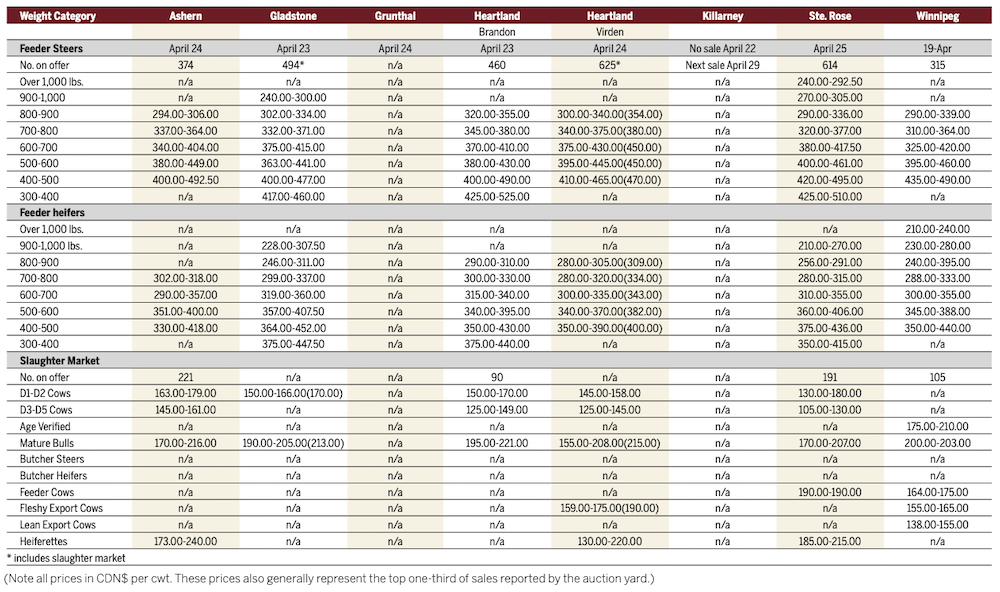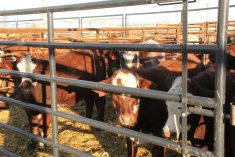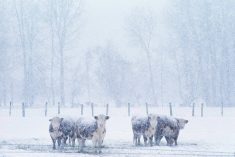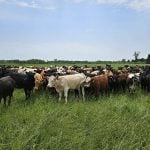The Manitoba cattle market remains strong but the sustainability of current high prices is a question.
“I talked with some local abattoirs and they say they really can’t compete with some of the bigger operations in the cities doing things cheaper or on a higher volume,” said Tyler Slawinski, auctioneer at the Gladstone and Ashern Auction Marts.
“Everything will be fine as long as things are sustainable. But if it’s not sustainable, when the next correction comes along it could wipe out a lot of producers if they have overextended themselves, which is very easy to do when everything costs so much.”
Read Also

Canadian canola prices hinge on rain forecast
Canola markets took a good hit during the week ending July 11, 2025, on the thought that the Canadian crop will yield well despite dry weather.
Slawinski said the number of cattle coming to auction is declining but remains on the high side.
“There’s still a fair [number] of cattle moving around, which is quite surprising for this time of year,” he said, noting that Gladstone sold approximately 1,500 head at its April 16 sale. That dropped to about 500 on April 23.
“It makes you wonder if the reports are correct that there’s no cattle left in the country, because they keep coming,” he quipped.
First cut cattle were in high demand and “bringing in big money,” which makes it easier to fill orders and put loads together.
“But this time of year, you’re starting to see a lot of pen clean out, odds and ends, people taking another cut through their replacement heifer pens and anything they can sell,” said Slawinski.
Cull cows continued to flow into auctions, which he said was expected after calving started this spring.
“The cow and bull trim market is as high as it’s ever been. It’s surpassed last spring.”
With planting in Manitoba either underway or about to begin, Slawinski said several auctions have or will soon switch to bi-weekly sales. More cattle at a sale makes it easier for auctions to fill orders.
Slawinski said those orders are going to Eastern and Western Canada, but there’s a backlog in the latter.
“When that avian influenza headline came around, it kind of came at the same time as pen space and poor weather hit at once and it backed up the market a little bit.”
Avian influenza was discovered in a Texas dairy herd last month and has spread to seven other states. The United States government has ordered testing for any dairy cattle being moved between states.




















